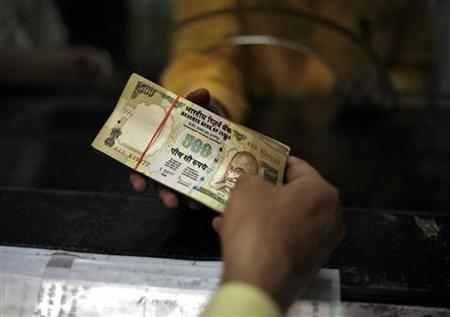 | « Back to article | Print this article |
How to choose a non-resident account
The rupee has slid from 51-52 per dollar in January to 56 this month. To arrest this fall, the Reserve Bank of India (RBI) deregulated interest rates on non-resident ordinary (NRO) and non-resident external (NRE) accounts in December 2011. Recently, it also freed rates on foreign currency non-resident (FCNR) accounts.
Virat Diwanji, executive vice-president and head of branch banking at Kotak Mahindra Bank, says interest rates on NRE accounts rose 350 to 400 basis points after the deregulation. "The interest rate on FCNR accounts may see a similar spike." For NRIs, this is great news.
But, how do you pick between these accounts? For most NRIs, tax liability on interest earned in these accounts and currency risk need to be considered before choosing. Here's some help:
Click NEXT to read more...
How to choose a non-resident account
NRE account
This is for foreign and repatriable funds. Foreign currency here has to be converted into rupees. State Bank of India (SBI) is now paying nine per cent on a one-year deposit, against 2.5 per cent in August 2011.
Others like ICICI Bank, HDFC Bank and Bank of Baroda have hiked rates by 500 to 600 basis points. You can take a loan up to Rs 100 lakh against funds in this account. Joint accounts can be held only by NRIs.
The balance here is freely repatriable. Account holders use NRE accounts to play in currency. Opt for NRE deposits if you anticipate correction in rupee (appreciation). Say an NRI invested $100 when the rupee was at 50, or Rs 5,000 (100x50).
Click NEXT to read more...
How to choose a non-resident account
Assuming he expects the rupee to appreciate to 45, he will make $111, plus interest on maturity (5,000/45). But if the rupee depreciates at the time of maturity and repatriation, he will lose.
The interest earned on this account is tax-free in India but can be taxed in countries where global income is taxed.
"NRIs who don't earn enough interest in their resident countries can put money in NRE accounts for lucrative rates," adds Diwanji.
Click NEXT to read more...
How to choose a non-resident account
NRO account
This account can hold income earned in India (dividends, pension or rent). Arvind Rao, a certified financial planner, says NRO helps make payments in rupees and, hence, those with dependents in India. the NRO account does not allow withdrawing the deposited funds.
This, too, is a rupee account like NRE accounts, so currency risk exists. It allows only up to $1 million (Rs 5.5 crore) to be repatriated per financial year. Most banks are paying between seven and nine per cent.
Any remittance done from an NRO account is subject to tax deduction at source (TDS), at 30 per cent. In case of a double taxation avoidance agreement (DTAA) between India and other countries, the TDS rate can be lower, like it is 15 per cent in the case of India and the US. NRO deposits may also be taxed in the NRI's resident country. NRO accounts can be jointly held even with an Indian resident.
<P>Click <STRONG>NEXT </STRONG>to read more...</P>
How to choose a non-resident account
FCNR account
The FCNR balance lagged NRE's, another reason to free its rate. It offers only term deposits of one to five years. The money put here can be held and withdrawn in foreign currency, involving zero currency risk.
On dollar and euro-denominated deposits, FCNR accounts earn between three and four per cent, depending on the term. Similarly, on pound-denominated deposits, it pays four-five per cent.
Principal and interest earned on FCNR is freely repatriable. Interest is tax-free in India but can be taxed in the resident country, depending on applicable tax norms. Loans up to Rs 100 lakh can be extended against funds in an FCNR.





